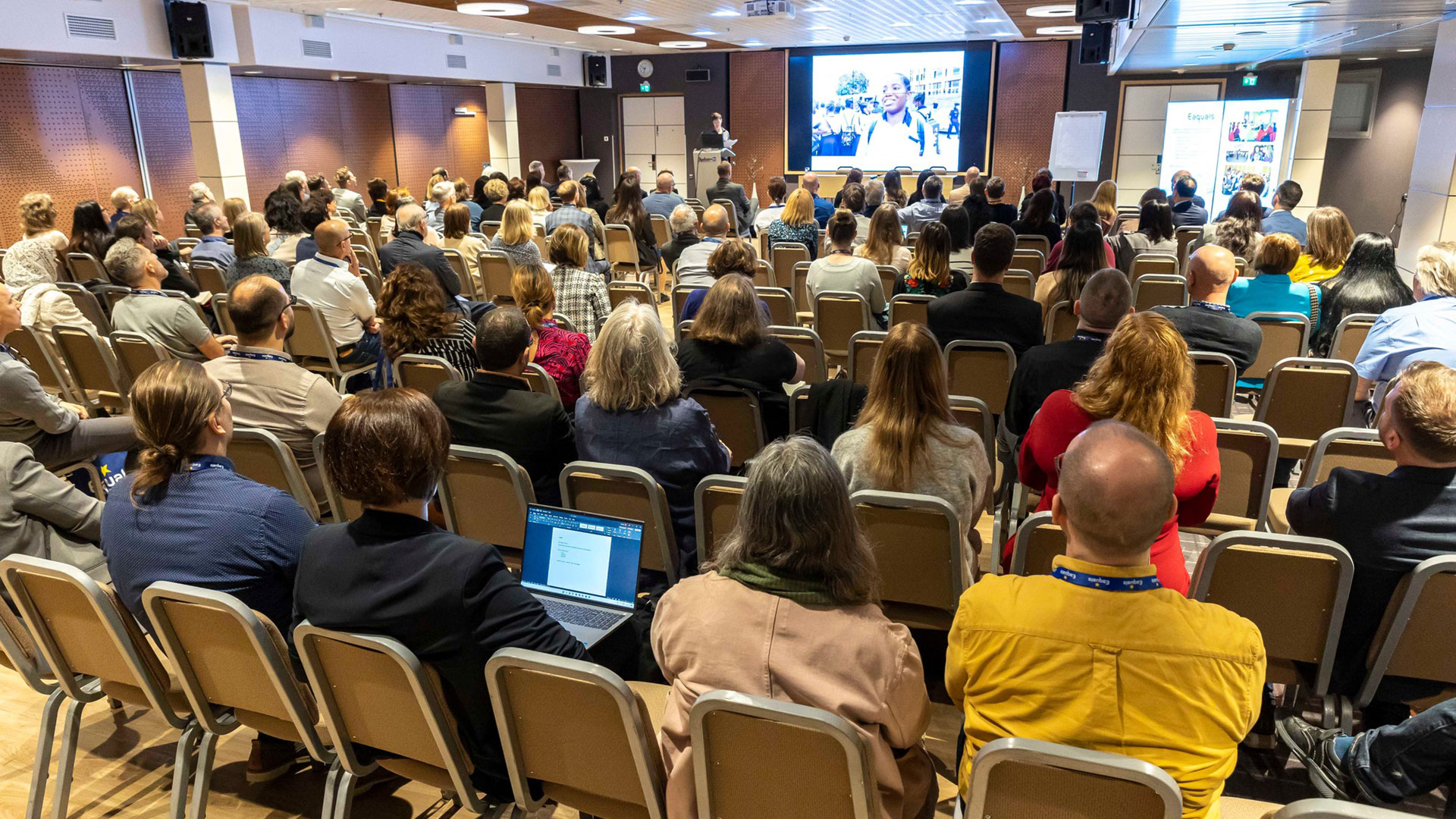The EAQUALS (Evaluation and Accreditation of Quality Language Services) Annual International Conference held in Tallinn, Estonia, last April, brought together 200 renowned educators, language professionals, and researchers from around the globe. The conference served as a platform for sharing knowledge, discussing trends, and exploring innovative approaches in language education. With a wide range of presentations and workshops, the event offered valuable insights into the ever-evolving landscape of language teaching and learning.
The conference opened with the Tim Goodier Memorial Plenary by Rose Aylett titled “Disrupting the commonplace: embedding critical literacy within language education”. She used Lewison’s definition to refer to the four dimensions of critical literacy: (1) disrupting the commonplace, (2) interrogating multiple viewpoints, (3) focusing on socio-political issues, and (4) taking action and promoting social justice. She continued by giving practical advice on how to embed critical literacy in education through materials (topics, texts, visuals, audios/audio visuals, and questions/tasks) and teacher education (reading lists and course texts, input sessions, assisted lesson planning, observation and feedback).
After the plenary, members had the opportunity to discuss several ELT issues among which the integration of Artificial Intelligence, including Chat GPT, and the implications this may have in assessment and skills development. They also explored ways to launch joint projects and facilitate communication among members.
An array of very interesting presentations followed. Among the ones that I attended I feel that is worth mentioning the one given by Michael Carrier titled “Does digital learning work? Evidence of its impact on learning outcomes”. Despite suffering from Covid 19, Michael Carrier, in a videoed presentation, presented important findings on digital learning pointing out that it is here to stay. He mentioned several benefits such as flexibility, accessibility, and learner autonomy and presented the findings based on the meta- analysis of over 100 papers and studies. According to the research presented, learners reap benefits from personalized practice with measurably better outcomes. Digital Learning improves learner outcomes, especially in the area of affective outcomes, and in learning proficiency. It also increases time on task and self-perception of confidence and autonomy.
Greece also had its share in presentations with Doukas school on “Joint Leadership in Action: Giving a fresh breath of life to in-house teacher development”. Maria Philippi (Head of Informatics Technology and Digital Education) and Dimitris Primalis (EFL coordinator at primary school) saw a full house when they shared their experience from reviving and sustaining Continuous Professional Development in a school. The “Innovation and Best Teaching Practices Days” scheme was launched in 2012 and has evolved through teamwork and the use of technology to facilitate learning and sharing of new ideas in education with the local and international educator community.
The “Greek contingent” also included Georgia Pappas, QLS president, Panagiota Bourtsoukli, inspector for EAQUALS and language school owner, and Nicky Koutalianou, Director of Sales at Ariston Psychometrics and owner of Bourtsoukli Language Center.
“Integrating Technology into Language Teaching” could not be absent from such a conference. Koray Tunc believes that technology in language teaching can enhance student engagement, facilitate interactive learning, and provide new opportunities for language acquisition and practice. He presented a lesson that could be paperless, using solely digital, online material with the aid of ® thinglink that acts as a platform. There he placed files for a wide range of activities that promote learner autonomy. Addressing the concerns expressed by the audience about the absence of teacher in the lesson plan and activities he shared, he explained that technology offers solutions to the educators who will eventually decide how to use them.
On a different note, Ludka Kotarska, the director of accreditation and EAQUALS founding member, is retiring, and she was honoured by the organization and the members during a special event on Saturday’s dinner.
The EAQUALS Conference 2023 in Tallinn provided a platform for language educators and professionals to exchange ideas, explore innovations, and gain valuable insights into language education. The presentations covered a wide range of topics, from technology integration to intercultural competence, assessment strategies, management conflicts, and inclusive practices. These key discussions highlighted the importance of adapting teaching methodologies and leveraging technology to create dynamic, engaging, and inclusive language learning environments. As the field continues to evolve, conferences like EAQUALS play a crucial role in shaping the future of language education and empowering learners worldwide. The next annual conference will be held in Portugal.
